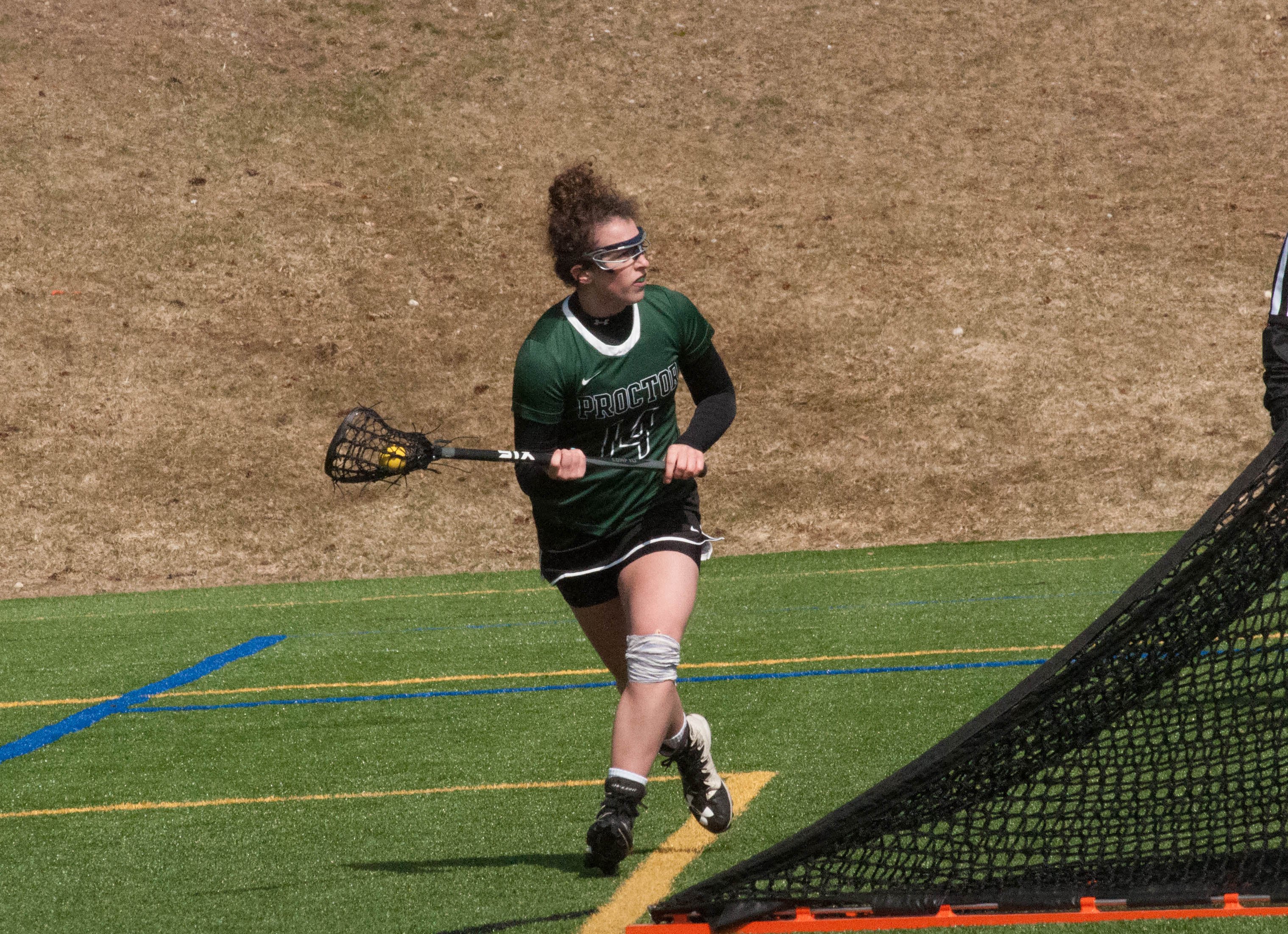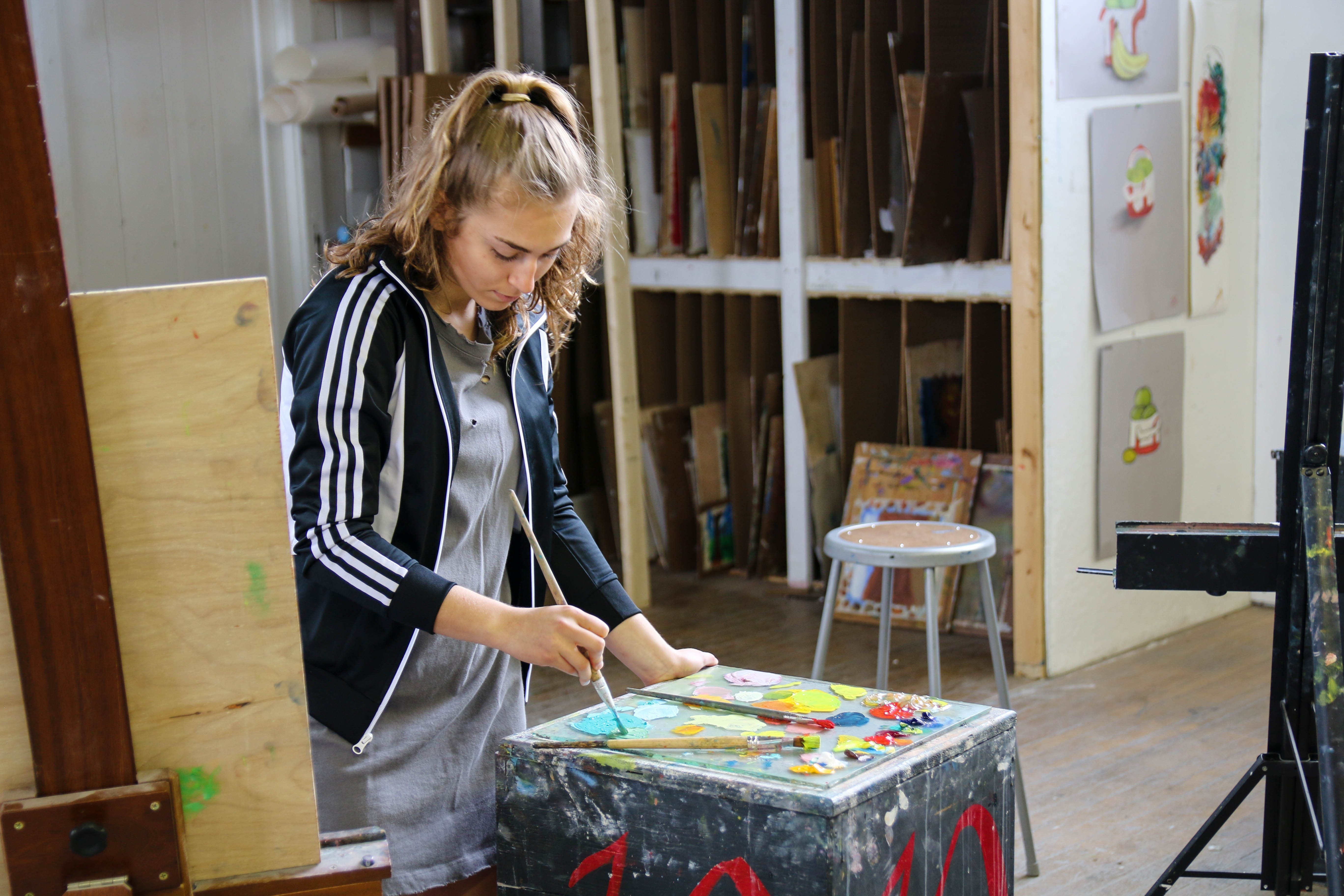I’m a planner; always have been, and despite the constant encouragement of colleagues to embrace spontaneity, probably always will be. I like to know ahead of time what is on the day’s agenda (and may or may not have a compulsion to lay my clothes out for the following day each night before falling asleep). It’s, as chemistry teacher Ian Hamlet says, “Just how my operating system works.” As such, Sunday evenings are spent looking at the week ahead and planning what Proctor narratives will emerge given scheduled events. Off-campus program blogs, Mike’s Notes, Team Spotlights, guest posts by faculty or staff all laid out in a nice orderly fashion so our team can see what gaps may exist as we try to help share the Proctor story with others.

I knew we had one of those gaps in content today, but I had no idea what the topic would be until a series of conversations this morning left me chewing on the idea of mental fortitude. I could write about how awesome Spring Formal was on Saturday night, but figured a link to photos from the event would suffice (check out photos HERE!). But then inspiration struck. First it was a fascinating graphic sent by a colleague outlining the 18 Things Mentally Strong People Do. Next it was a conversation with the athletic department self-assessing their collective work developing mental toughness in our athletes as they strive to pursue the Profile of a Proctor Graduate. Then it was a conversation with colleagues about the need for more tenacity within their classes. Finally, personal challenges and a podcast over the weekend brought to light the need to be aware of where we derive our inner strength when adversity inevitably comes our way. Perhaps it is just a coincidence these factors all coincided with an open “blog date” today, but I thought I’d run with it in hopes of raising a topic that we must continue to address as a school community, and as a culture as a whole.
Amy Morin, the author of 13 Things Mentally Strong People Don’t Do, has enough experience with hardship to get the attention of those around her. As she notes in her TedX Talk above, “Sooner or later you’re going to hit a time in your life when you are going to need all the mental strength you can muster.” Her list of 18 things mentally strong people do is a list we should each tack up in our office, dorm room, or next to our bathroom mirror. It serves as a daily reminder to choose freedom from the negativity that accompanies life's trials. But what are we doing as a school to help our students understand the importance of mental fortitude, grit, perseverance? Are we effectively walking that magical line between rigor and support that we tout in our marketing materials?

It’s easy to say, “It’s a generational issue,” or, “It’s too late to develop mental toughness after they arrive at Proctor; either they have it or they don’t.” But we disagree. We believe Proctor's educational model provides the perfect incubator for the development of mental fortitude, grit, mental toughness or whatever you want to call the critical attribute written about at length by Angela Duckworth, Paul Tough, and others and acclaimed as the most important trait to develop in young people.

Much of Proctor’s educational model is designed to place students in challenging situations that test mental fortitude. Whether it is on the athletic field, on the stage, in the studio, or studying off-campus, life lived outside of a comfort zone is part of our DNA. But, increasingly, we see students (and parents) seeking detours around the intentionally derived opportunities for character development that exist within Proctor's model. Our challenge as a school is to provide support to those students who struggle to embrace challenge, while simultaneously articulating and demonstrating the inherent value in the struggle itself.

Few of us seek more perseverance during the “good” times. We do not stop in the midst of a beautiful sun-filled spring day like today and ask for a trial to be thrown our way. Instead, we rationalize struggles as an opportunity to build traits, like mental fortitude, that would otherwise remain underdeveloped.

But in a culture where we, as parents, so often seek to smooth the road ahead of our children in order to ensure their success, an education like Proctor’s, filled with intentional bumps in the road, is just what we need our children to experience. It is in these moments of uncertainty and struggle that allows students to make the conscious decision to take ownership of their life and how they embrace obstacles. We have a responsibility as educators to not only guide our students THROUGH the rough waters of adolescents, but to guide them TO those very same waters in the first place.








